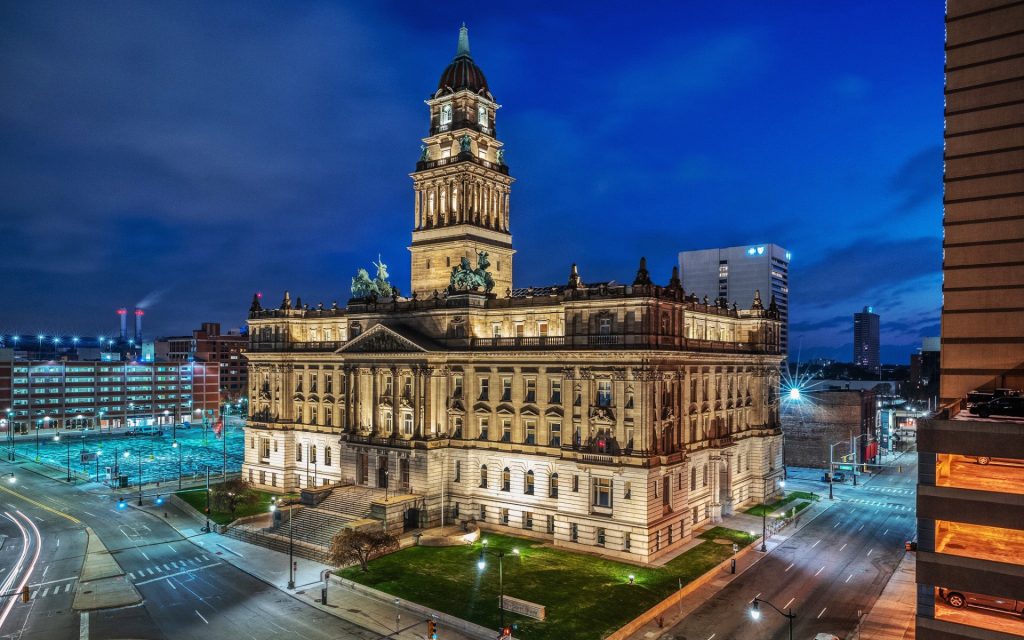
By Bloomberg Associates’ Rose Gill and Megan Sheekey
Now that the new year is in full swing, government leaders should reflect on all of their accomplishments in 2022. Through a combination of new funding sources, collaboration, innovation, and resolve, U.S. cities began to rebound from the impacts of the COVID-19 pandemic, paving the way for sustainable growth. 2022 was a record year for federal appropriations, including the Infrastructure Investment and Jobs Act (“IIJA”) and the Inflation Reduction Act (“IRA”), following the 2021 American Rescue Plan Act (“ARPA”) that continued offering aid in 2022.
While we applaud our executive and legislative branches of government for bipartisan efforts to provide communities across the country with an unprecedented level of resources, it can be extremely challenging to identify, obtain, and manage these federal resources. Success requires a strong level of coordination and collaboration across all levels of government and cross-sector partnerships.
To help cities navigate the complexities of the sizeable federal funding streams that have been promulgated since the pandemic, Bloomberg Philanthropies’ e311 Federal Assistance program, in collaboration with the US Conference of Mayors, continues to offer guidance from experts on federal grant programs, eligibility, application processes, and how to retain the funds with proper documentation. By the end of 2022, the e311 program helped over 6,000 city representatives from over 1,400 cities with the CARES Act, ARPA and IIJA, and IRA funding opportunities.
Below is a small selection of federal grants awarded to cities in 2022. These awards are a testament to the smart work that state and local governments are doing to retrieve funds and help to improve the lives of their residents.
City of Detroit, Michigan
$104,657,051 for its I-375 Community Reconnection Project awarded by the Nationally Significant Freight and Highway programs of the Infrastructure for Rebuilding America (INFRA) Grant Program. This project will reconnect neighborhoods that have been divided by a highway, improve community access, create jobs, and improve public safety.
Hudson County, New Jersey
$26,000,000 for Route 7 Drainage Improvements through INFRA. To tackle chronic flooding and associated issues, federal funds will be channeled into raising a roadway and installing new pipes, flood walls, and pumping stations. The project will enhance vehicular safety and reduce pavement erosion caused by extreme weather.
City of Moorhead, Minnesota
$26,309,600 for the City’s Downtown Moorhead Grade Separation Project through the Rural Surface Transportation Block Grant Program administered by the U.S. Department of Transportation. Funding will support the construction of two underpasses that will increase public safety and mobility, while reducing congestion and vehicle emissions.
City of Clemson, South Carolina
$3,930,000 awarded to benefit the Clemson Area Transit through the Low- and No-Emission and Bus and Bus Facilities programs of the Federal Transit Authority. Funding will allow the Clemson Area Transit to replace old diesel buses with zero-emission electric buses and decrease the city’s carbon footprint. This project will not only improve air quality but enhance service for residents and college students who rely on public transportation.
City of Berlin, New Hampshire
$19,534,391 for the Renewing Berlin with Renewable Energy initiative through the Local and Regional Project Assistance (Rebuilding America’s Infrastructure with Sustainability and Equity [RAISE] Grant Program). The project will upgrade the city’s downtown streets, parking areas, and sidewalks as well as increase ADA accessibility and tree plantings in the area. It also includes the installation of an innovative snow-melt system using biomass technology. The expansion of pedestrian and transportation options will enhance public safety and help to boost the local economy.
City of Buffalo, New York
$25,000,000 to transform Main Street through the RAISE grants program. The Middle Main Street project will help to rehabilitate an important area of the city, offering more transportation options, including pedestrian pathways, and raised bicycle tracks. These upgrades will encourage more connection among residents and visitors and increase access to businesses and jobs with economic benefits.
If your city missed out on grant opportunities like the ones above, let them serve as inspiration. There are a whole host of new or recurring grant opportunities awaiting your submissions in 2023.
To maximize grant success, here are a few tips for 2023:
1) Centralize your grants management activities to ensure coordination across departments and a strategic approach;
2) Develop strong partnerships across all levels of government and with nonprofit and philanthropic partners to leverage resources;
3) Confirm that projects/grant opportunities align with community and stakeholder priorities;
4) Prioritize reporting and compliance requirements to avoid misuse of funds and penalties; and
5) Remember to acknowledge all the hard-working people involved in this work for civic good.
Bloomberg Philanthropies remains committed to helping cities of all sizes maximize federal resources, including our partnership programs: the Federal Assistance e311 Program and Local Infrastructure Hub with a free portal of new funding opportunities. Carpe diem!
Rose Gill is a Principal at Bloomberg Associates, overseeing the organization’s Municipal Integrity practice. Rose also helps to lead the work of the e311 Federal Assistance Program. Megan Sheekey leads Strategic Partnerships for Bloomberg Associates, working with mayors and city leaders to help foster and structure strategic public-private collaboration supporting civic priorities.